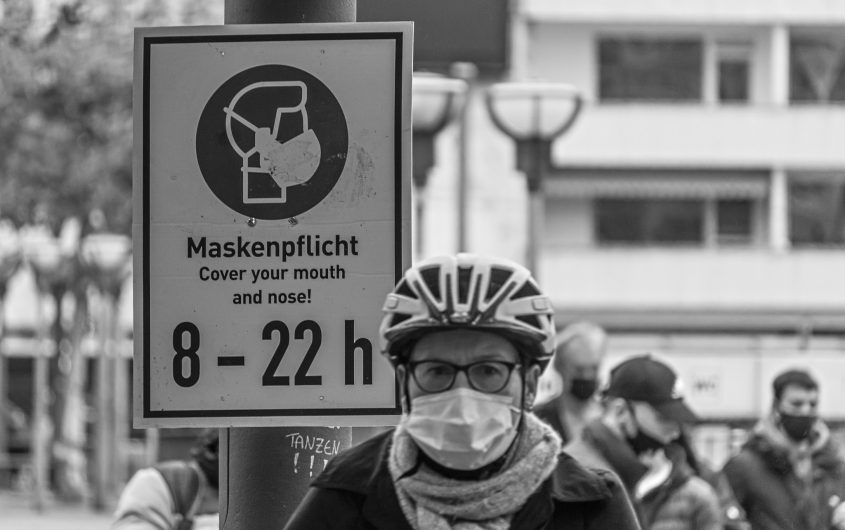
7C0 via Flickr
Public Health and Public Trust
Transatlantic Challenges in Health Policy
As the COVID-19 pandemic has illustrated, public trust in government decision-makers is as important as public health policies. In the United States and Germany, health experts were thrown into the limelight as they advised politicians on strategies to mitigate the spread of the novel coronavirus. Changing messaging and policies, resentment toward regulations that restricted travel and behavior, and a misunderstanding of how exactly public health experts advised the government on policies all contributed to a growing distrust of not only health experts and policymakers, but democratic processes in general. How can the United States and Germany build better communications infrastructure that supports public health and ultimately trust in leadership? How have health care experts and workers been affected, and what can be done to support them? How can governments lift the veil on decision-making processes to restore faith in democratic institutions? What transatlantic lessons can be learned from these shared experiences?
with
Marjorie K. Connolly, Public Health Communications Consultant, Infectious Diseases Society of America
Kathrin Loer, Professor of Political Studies, University of Applied Sciences Osnabrück
This webinar will convene via Zoom. Contact Ms. Elizabeth Hotary at ehotary@aicgs.org with any questions.
Marjorie K. Connolly is an independent public health communications consultant who works with the Infectious Diseases Society of America on COVID-19 response. She studies global history at the Humboldt and Freie Universities of Berlin, where she focuses on the conceptual history of universal health care. As a 2018-2019 Robert Bosch Foundation Transatlantic Fellow she conducted research comparing the German and American health systems. Her career in American health policy has included roles on Capitol Hill and as spokeswoman for the U.S. Department of Health and Human Services during the Obama administration.
Kathrin Loer is a Professor of Political Studies at University of Applied Sciences Osnabrück in Germany. Her research focuses on consumer science and consumer policy, public health, energy policy, behavioral policy, policy research, advocacy/lobbying, and civil society organizations. She is co-spokesperson of the Advisory Board for Consumer Research of the Federal Ministry for the Environment, Nature Conservation, Nuclear Safety, and Consumer Protection. She is an expert on policy instruments in health and consumer policy as well as behavioral public policy. Her research also focuses on expert involvement and the role of scientific evidence in policy making. She is co-editor of the book Behavioral Policies for Health Promotion and Disease Prevention (Palgrave Pivot, 2019) and has published several articles in academic outlets such as the Journal of Comparative Policy Analysis, Public Health and Policy & Politics.
This event is part of the AGI project “The Importance of the Transatlantic Partnership in Times of Global Crises” and is generously funded by the Transatlantic Program of the Federal Republic of Germany, funded by the European Recovery Program (ERP) of the Federal Ministry for Economic Affairs and Climate Action (BMWK).






